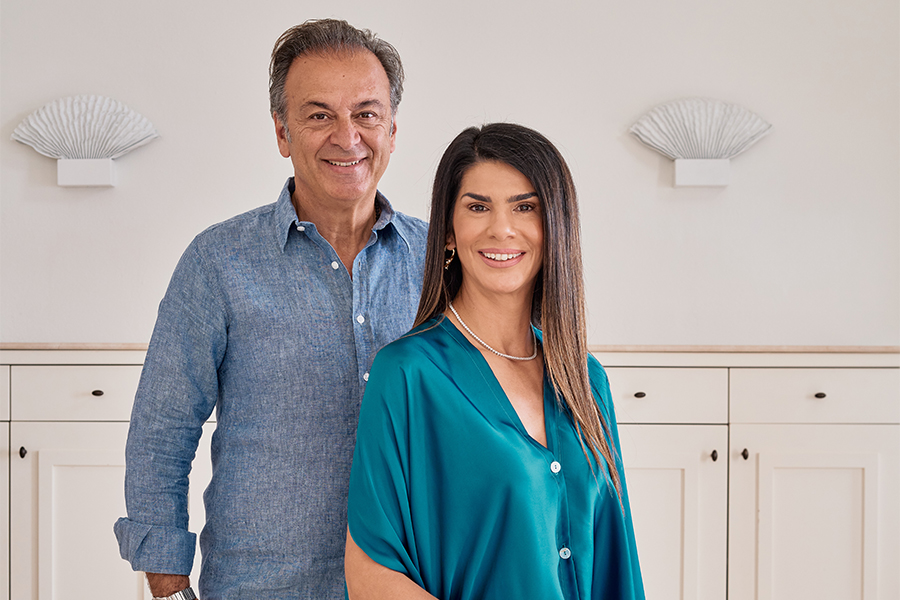HIS ELEVATOR PITCH: The vision for SCP – to make the world a better place by advancing the values of personal wellness, social good and the environment – is not ours. This vision is shared by a committed and growing share of the global population.
THE INVESTMENT STRATEGY THAT MAKES THE NUMBERS AND THE CONSCIENCE WORK: Our investment company (Alpha Wave Investors) has always been a “special situation” buyer. Our strategy is to fly below the radar of the big institutional buyers, who often have access to cheaper capital or are willing to be more aggressive on price. Instead, we focus mostly on adaptive reuse deals in secondary and tertiary markets that have strong fundamentals, but where the assets we’re targeting are too small or messy for large institutional buyers. We will also do deals where our business plan for the target property enables us to drive a better pro forma than a traditional buyer may be able to underwrite (e.g. by activating excess space into new uses such as coworking and membership-based fitness). In the case of the property that ultimately became our first SCP hotel in Colorado Springs, I think our only competition was a guy with a bulldozer. We were able to get a good hotel in a solid location at a price that equated to the land value. In the case of our second SCP hotel (SCP Redmond), we benefitted from city incentives, a property tax freeze, historic tax credits and the opportunity zone legislation.
Read more from Boutique Design’s Spring 2020 issue.
We like the idea of taking properties where others may be compelled to raze the improvements and start over and instead, recycling the assets themselves into viable businesses. This very nicely supports the vision of SCP, which is to offer the conscious consumer a holistic product that caters to individual, community and global wellbeing.
WHY HE’S CONVINCED THAT BOTH GUESTS AND INVESTORS WILL STAND BEHIND ETHICAL CONSUMPTION: Just as consumers are embracing innovation in the lodging space, we’ve been pleased to see that investors also appreciate the need for relevant innovation. The valuations achieved recently by fresh, non-traditional hotel companies such as Six Senses, Freehand and Citizen M, all support the notion that investors understand the value of appealing new brands.
WHO HE LOOKS UP TO FOR INSPO: Companies such as Patagonia, Trader Joe’s, Tom’s and Whole Foods that prioritized doing the right thing over short-term profits, in my view. Also, data shows that those companies do better over time, as well.
BEST PRACTICE COST MANAGEMENT TO DELIVER WOW DESIGN AT APPROACHABLE PRICE POINTS: Our eco-industrial / bohemian design aesthetic and our skew to the younger demographic means that customers are not only accepting of, but they expect and appreciate certain unfinished edges and retained conditions. Accordingly, we can save money on renovations by keeping certain existing elements of a property (older windows, beat up sidewalks) that are completely functional, but which may not have exactly the right look for a modern branded hotel. We also save money by not putting in hard ceilings, new flooring or even drywall in many of our spaces when the concrete and brick actually add to the character of the spaces.
I will say that we love the “handcrafted” aesthetic. We try to use local craftsman to create millwork, one-off case goods, free-standing meeting rooms and Zen / meditation spaces. We also seek to juxtapose exposed industrial elements with natural materials and living walls (plants). We try to focus our investment dollars on the things that guests appreciate the most or that support the mission of SCP (such as energy retrofits, solar, water conservation, etc.). We also prioritize less-glamorous but crucial things such as lighting, plumbing, and solid surfaces to help us maintain a bright, clean feel.

WHAT’S AHEAD FOR SCP: We are very pleased with the response SCP has achieved, and we are now looking to thoughtfully grow the portfolio so that we may more efficiently build awareness and serve a broader demand base. We do not have any specific geographic limitations and we are exploring some portfolio conversion scenarios, where we would convert a larger pool of well-located hotels that are currently rate-constrained due to affiliation with legacy brands into SCP, which we would have the potential to generate meaningful upside to the owner while enabling us to expand our footprint.
HOW HE COMPETES IN A SECTOR DOMINATED BY PRICIER FLAGS: At times, we find that while our values may be consistent with those of, say,1 Hotels, we must clearly express that that our service level, décor and price point are all distinct from what you’d get in a luxury hotel, spa or resort. By acknowledging up front that we are far from perfect – but we continually try to be better, we set expectations at the correct level and therefore keep costs down. We’re much more oriented to the crowd who is drawn to the cold-water surfing on the Oregon Coast, or the extreme rock climbing at Smith Rock or hard-core mountain biking at Garden of the Gods. SCP is meant to be a bit edgy and real. A place where it’s ok to show up dusty from a day on the trails. Where, after a hard day of kayaking or mountain biking, you can put your feet up in our lobby and have an ice-cold local craft beer or kombucha while your dog enjoys an ice-cold bowl of local water right next to you.
WHAT SCARES HIM: I’d say the trend we’re keeping an eye on is over-tourism. With hundreds of millions of newly prosperous individuals all over the world now seeking to travel, many of the top global tourism destinations are being overrun. Today, this is mostly a location-specific issue (e.g. Yosemite) but over-tourism will have broader implications both positive and negative on the environment and the hospitality industry in the years to come.

ON WHY HE PROBABLY ISN’T GOING TO WRITE A TELL-ALL: I’m a pretty open book, and moreover, I’m really not terribly interesting and I have virtually no hidden talents, so there’s not much about me that I wish people knew that they don’t already know.The riskiest decision I’ve ever made was leaving an amazing team and a comfortable role at Host Hotels in 2005 and moving my young family to the wild west coast to join Sunstone Hotel Investors, which at the time was a new, somewhat cowboy entrant into the hotel REIT space. There were many times early on when I thought I may have taken the wrong path, but in the end taking the path less traveled proved to be a good decision. The best decision I’ve ever made was marrying my wife, Pam and together creating a family that includes our four amazing daughters.
Photos: Soul Community Planet


